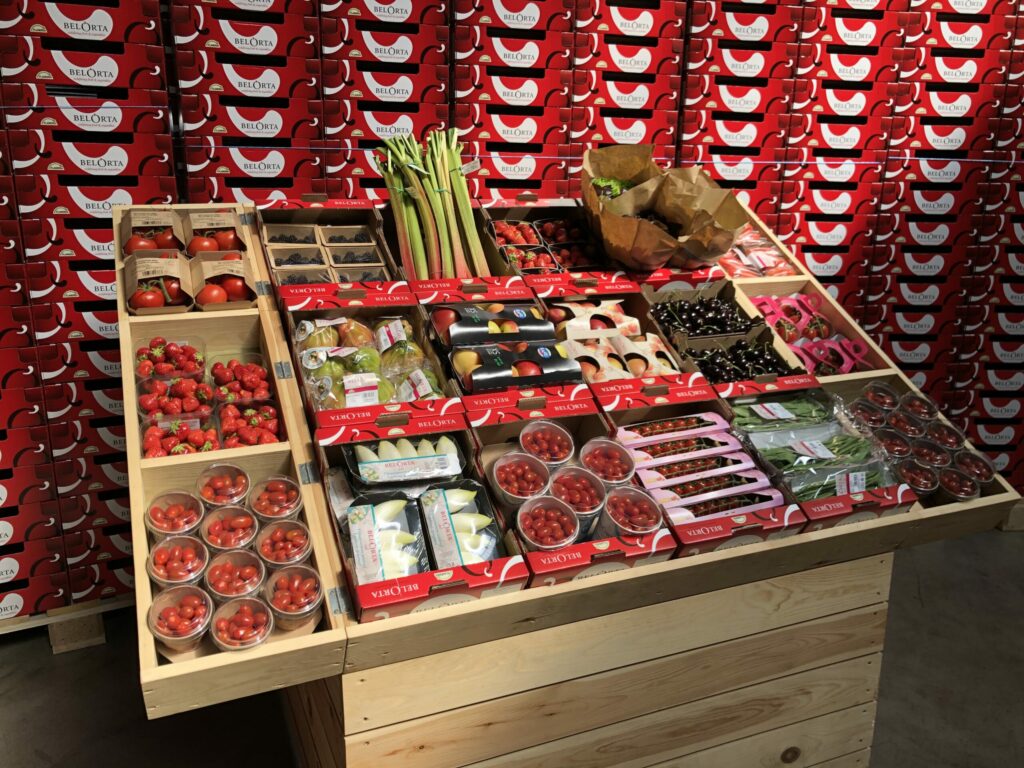European citizens are increasingly exposed to a cocktail of PFAS pesticides in their food, with rising concentrations being found in fruit and vegetables – and nowhere is the situation worse than in Belgium.
Per- and polyfluoroalkyl substances (PFAS) chemicals are man-made pollutants known as "forever chemicals" as they do not break down in the environment. PFAS pollution was known to be a problem in Flanders, as a result of the 3M's site in Zwijndrecht, but last November the debate reached Brussels after these chemicals were found in the city's tap water.
Now, concerns have once again been raised over the presence of PFAS, this time in fruit and vegetables as they are sprayed on food crops. A joint report by several organisations, including the Pesticide Action Network (PAN) Europe, showed the volume of these products contaminated with PFAS increased by 220% and 274%, respectively, over the space of ten years (2011-2021).
"These findings indicate that the use of PFAS in pesticides causes fruit and vegetables to become contaminated with residues of these chemicals, which is leading to an increasingly frequent indigestion of PFAS pesticide residues by European consumers," said Salomé Roynel, Policy Officer at PAN Europe.
"This source of PFAS contamination should not be downplayed, as these pose long-term risks to human health and the environment."
Belgium performing worst
Based on official data from national monitoring programmes of pesticide residues, fruit and vegetables produced in Belgium were the most frequently contaminated with PFAS (27%). This has made the country the leading producer of PFAS-contaminated food within the EU.
The three most frequently detected PFAS-active substances were trifloxystrobin, flonicamid and fluopyram.
Between 2011 and 2021, on average 34% of the 656 fruit samples contained residues of at least one PFAS pesticide. The proportion of fruit samples contaminated with residues of PFAS pesticides in this period has risen 1.8-fold. A maximum of three PFAS substances were detected in a single fruit sample, while 12 different PFAS pesticides were detected across all samples.

Watering a field in Flanders, June 2023. Credit: Belga / Eric Lalmand
The most frequently contaminated fruit imported to Belgium were bananas (40% contained residues of PFAS), grapefruit (29%) and melons (20%).
Vegetables are less contaminated in Belgium, with 12.3% of the 504 vegetable samples containing residues of at least one PFAS pesticide. The maximum number of PFAS pesticides in a single vegetable was three, while nine different PFAS pesticides were detected across all samples.
Peppers from Belgium were most likely to be contaminated (56% of all samples) followed by aubergines (39%) that were grown in the country.
Ban needed to protect citizens
The Netherlands (27%) was in second place, followed by Austria (25%), Spain (22%), Portugal (21%) and Greece (18%). The growth rate in PFAS contamination was significantly higher than the European average in Austria (+698% for fruit, +3277% for vegetables) and Greece (+696% in fruit, +1974% in vegetables).
PAN Europe's Roynel stressed that the findings raise serious environmental and human health concerns. "When zooming in on the most detected PFAS pesticides, evidence about their persistence and their toxicity to human health is already well documented, including risks to unborn children, brain damage, disruption of the endocrine system and cancer."
The group argued that the contamination is especially concerning as PFAS pesticides are not necessary to grow crops. "They are an easily avoidable source of PFAS pollution."
In 2020, the EU pledged to ban all unnecessary PFAS in Europe, but PFAS pesticides were left out of the proposal on "the false assumption that they are already sufficiently regulated under the EU Pesticides Law". PAN Europe is therefore urgently calling for a ban on all PFAS pesticides to curb citizen exposure to PFAS pesticides and protect citizen health.

